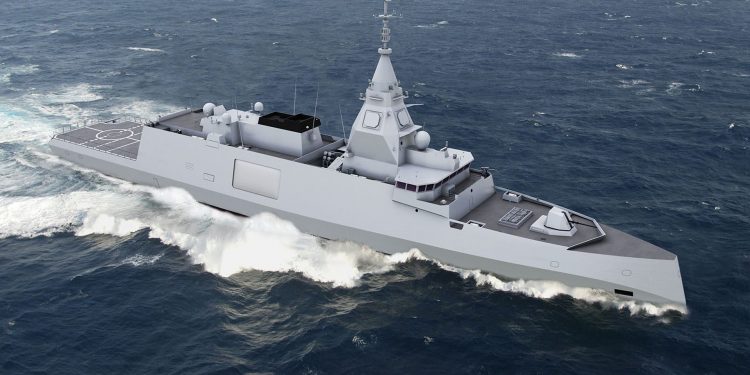France and Greece on Tuesday signed a multibillion-euro deal for Athens to buy three French warships, in an accord hailed by President Emmanuel Macron as a major boost for the EU’s defence ambitions.
The memorandum of understanding for the purchase of the Belharra frigates was inked less than two weeks after France was left reeling by the cancellation by Australia of a contract to buy French submarines as part of a new defence pact with Britain and the US.
Macron said after meeting Greek Prime Minister Kyriakos Mitsotakis at the Elysee Palace that Greece would buy the three frigates from France as part of a deeper “strategic partnership” between the two countries to defend their shared interests in the Mediterranean.
The deal marks “an audacious first step towards European strategic autonomy”, Macron said.
He called Athens’ decision to buy the Belharra ships “a sign of confidence” in France’s defence industry, against competition notably from the American group Lockheed Martin, according to press reports.
The deal also sent a clear signal from Paris after its stinging loss this month of a multibillion-euro contract for submarines with Australia, which announced it would instead buy nuclear-powered subs from the US.
“It contributes to European security and the reinforcement of Europe’s strategic autonomy and sovereignty, and therefore to international peace and security,” Macron said.
The French leader has long insisted that Europe needs to develop its own defence capabilities and no longer be so reliant on the United States, even warning that NATO was undergoing “brain death”.
“Today is a historic day for Greece and France. We have decided to upgrade our bilateral defensive cooperation,” Mitsotakis said.
He said the agreement involves “mutual support” and “joint action at all levels,” as well as an option to purchase a fourth frigate.
No financial details were provided on the value of the deal, but the ships are set to be delivered starting in 2024.
The accord did not include the sale of any French Gowind corvettes, a possibility that had been evoked in Greek media reports.
“The construction by France of this state-of-the-art equipment contributes to an ambitious European defence,” said French Defence Minister Florence Parly.
‘Not antagonistic’
Mitsotakis added that the French deal would not affect talks on extending a longstanding defence cooperation agreement between Greece and Washington, despite the tensions sparked between the EU and Washington after the Australia submarines row.
The agreement is “not antagonistic” to the Greek-US relationship, he said, citing how “France stood by us during difficult times in the summer of 2020”, a reference to Turkey’s challenging of Greek territorial rights in the Aegean Sea.
Macron added that the frigate sale was not meant to be seen as a threat against Ankara, but a means to jointly ensure security in the Mediterranean as well as in North Africa, the Middle East and the Balkans.
Greece and France had already roused Ankara’s ire in January, when they signed a 2.5-billion-euro ($3 billion) deal for 18 Rafale jets — 12 used and six new — as part of a burgeoning arms programme to counter Turkish ambitions.
Earlier this month, Mitsotakis surprised many observers with plans to buy an additional six Rafale jets, bringing the total order to 24.
“It’s not directed against anyone,” Macron said. “It allows more efficient and coordinated action for peace, cooperation and stability, in an international order founded on the rule of law and the full respect of commitments.”
Macron also vowed that the US-Australia pact would not impact France’s strategy for the Indo-Pacific region, where China has made no secret of its desire to exercise significant military sway.
“We have one million fellow citizens who live in this region, and over 8,000 soldiers deployed there,” Macron said, referring to France’s presence through several overseas territories in the region.
He added, however, that “Europeans must stop being naive” regarding geopolitical competition, while confirming that France’s ambassador to Washington, called home in the wake of the subs crisis, would return on Wednesday.











